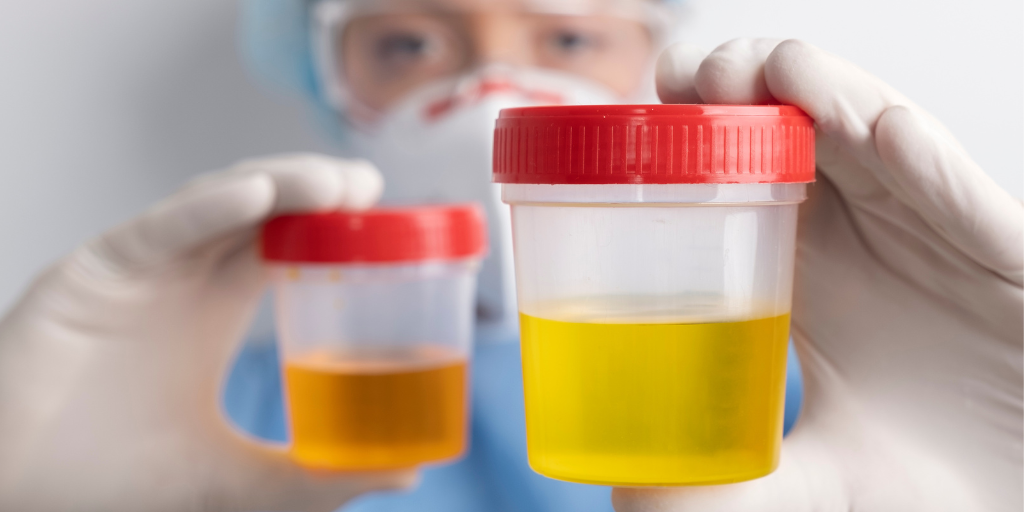Froth in urine
- +91 90537-79477
- nephrons2024@gmail.com
- Near Tinkoni, GT Road, Bathinda

Froth in urine in bathinda
Frothy urine is characterized by the appearance of bubbles or foam on the surface of the urine after it has been passed. While this can occur for several reasons, it’s essential to differentiate between normal variations and potential underlying health concerns.
In many cases, frothy urine is simply due to a rapid or forceful urine stream, causing the liquid to agitate and create foam. This is often harmless and disappears quickly. Additionally, concentrated urine, often resulting from dehydration, can also appear foamy due to its increased density.
However, persistent frothy urine could be a sign of a more serious issue, such as proteinuria, which may indicate kidney problems. If you experience frothy urine regularly, it’s crucial to seek medical advice. For expert diagnosis and treatment of froth in urine in Bathinda, consult our specialists who provide comprehensive care for urinary health.
Causes of Frothy Urine
Frothy urine can result from various factors, and understanding these causes is crucial for effective management. Commonly, frothy urine may occur due to a rapid or forceful urine stream, which creates bubbles in the liquid. Additionally, dehydration can concentrate urine, leading to a frothy appearance. However, persistent froth in urine in Bathinda might indicate more serious conditions.
Dehydration:
Dehydration or reduced fluid intake can lead to concentrated urine, which may appear frothy due to its increased density.For information on hydration and maintaining fluid balance, visit the U.S. National Library of Medicine.
Proteinuria:
An excessive amount of protein in the urine is a common cause of frothy urine. This condition can be indicative of underlying kidney problems, such as diabetic nephropathy or preeclampsia.
Urinary Tract Infections (UTIs):
Infections of the urinary system can lead to inflammation and changes in urine composition, resulting in foamy urine.
Kidney Disease:
Various kidney diseases, including glomerulonephritis, can damage the kidneys' filtering system, allowing protein to leak into the urine and cause frothiness.
Preeclampsia:
This pregnancy complication is characterized by high blood pressure and proteinuria, often leading to foamy urine.
Other Conditions:
While less common, other factors like bladder cancer, prostate problems, or certain medications can contribute to frothy urine.
Symptoms of Frothy Urine
While frothy urine itself might not always indicate a serious issue, it’s essential to be aware of accompanying symptoms that could suggest an underlying health condition. If you experience frothy urine in Bathinda, it’s crucial to monitor for additional symptoms such as
Swelling:
Noticeable swelling in the legs, ankles, or face can be a sign of fluid retention, often associated with kidney problems.
Fatigue:
Persistent tiredness or lack of energy might indicate an underlying health issue, including kidney disease.
Shortness of breath:
Difficulty breathing can be a symptom of several conditions, including heart or kidney problems.
Changes in urination:
Alterations in urinary frequency, urgency, or the amount of urine produced can be indicative of urinary tract issues.
Blood in the urine:
The presence of blood in urine, whether visible or microscopic, requires immediate medical attention.
Pain or discomfort:
Pain during urination or in the back or side area could signal a kidney stone or other urinary tract problem.
Diagnosis of Frothy Urine
If you notice persistent or unusual frothiness in your urine, it’s essential to consult a healthcare provider for a proper evaluation. They will conduct a thorough examination and may recommend the following tests:
- Urine analysis: This test checks for protein, blood, or other abnormalities in the urine.
- Blood tests: These tests can assess kidney function and check for other underlying medical conditions.
- Imaging studies: In some cases, imaging tests like ultrasound, CT scan, or MRI may be necessary to visualize the kidneys and urinary tract.
For expert diagnosis and treatment of frothy urine in Bathinda, contact our specialists who provide comprehensive care for urinary health.
Treatment for Frothy Urine
- Proteinuria: If the frothy urine is caused by excess protein in the urine (proteinuria), the underlying issue, such as kidney disease or preeclampsia, needs to be addressed. Treatments may include medications, lifestyle modifications, or, in severe cases, dialysis or kidney transplant.
- Urinary Tract Infections (UTIs): Antibiotics are typically prescribed to treat UTIs.
- Kidney Stones: Treatment options for kidney stones vary depending on the size and location of the stone.
- Other Conditions: Treatment will depend on the specific diagnosis.
When to See a Nephrologist:
If you experience any symptoms associated with froth, consulting a nephrologist is essential. Early detection and diagnosis are crucial for effective management.
Enhance your kidney health expert treatment by the best nephrologist in Bathinda. Book a session or contact Us on WhatsApp now!